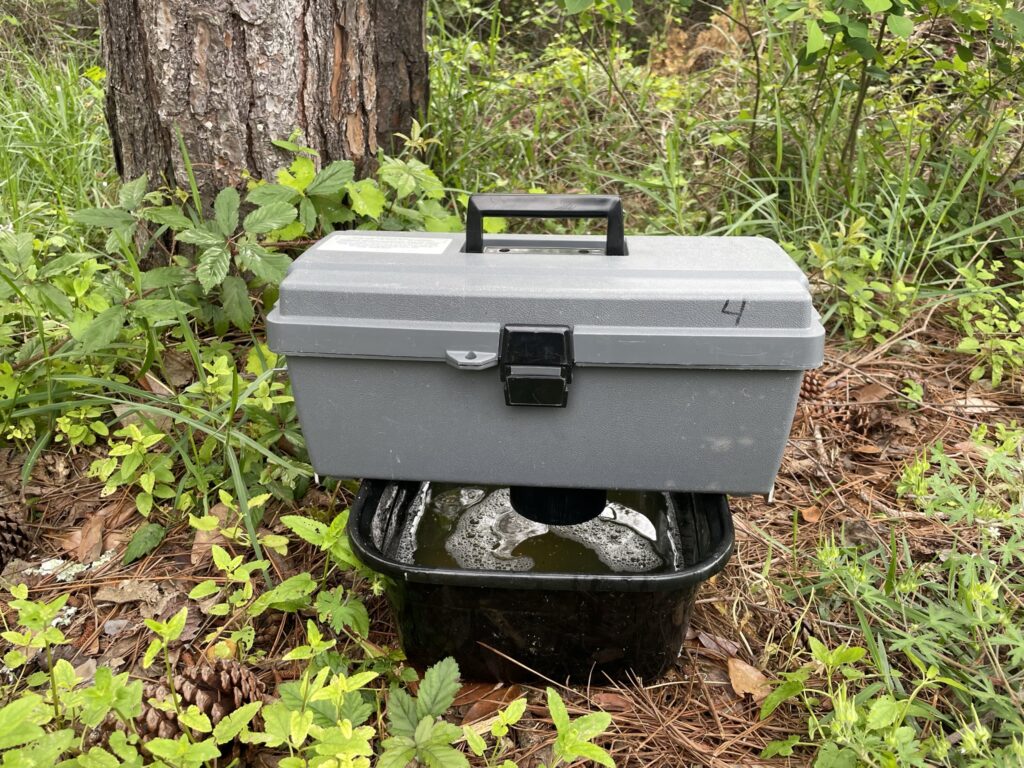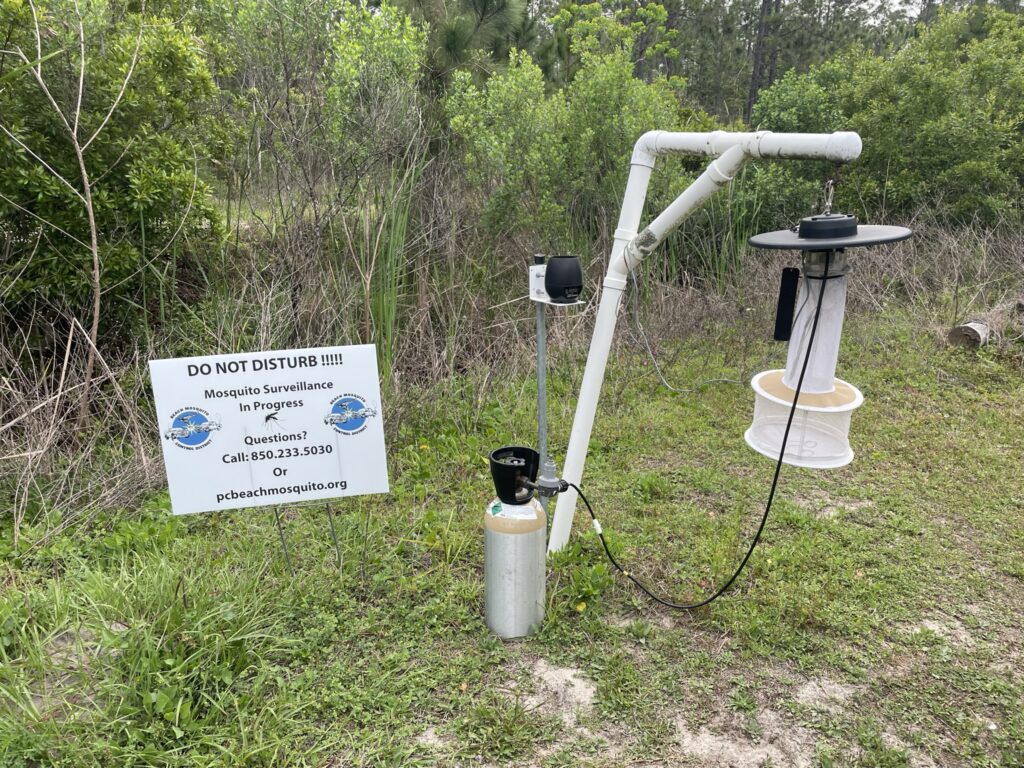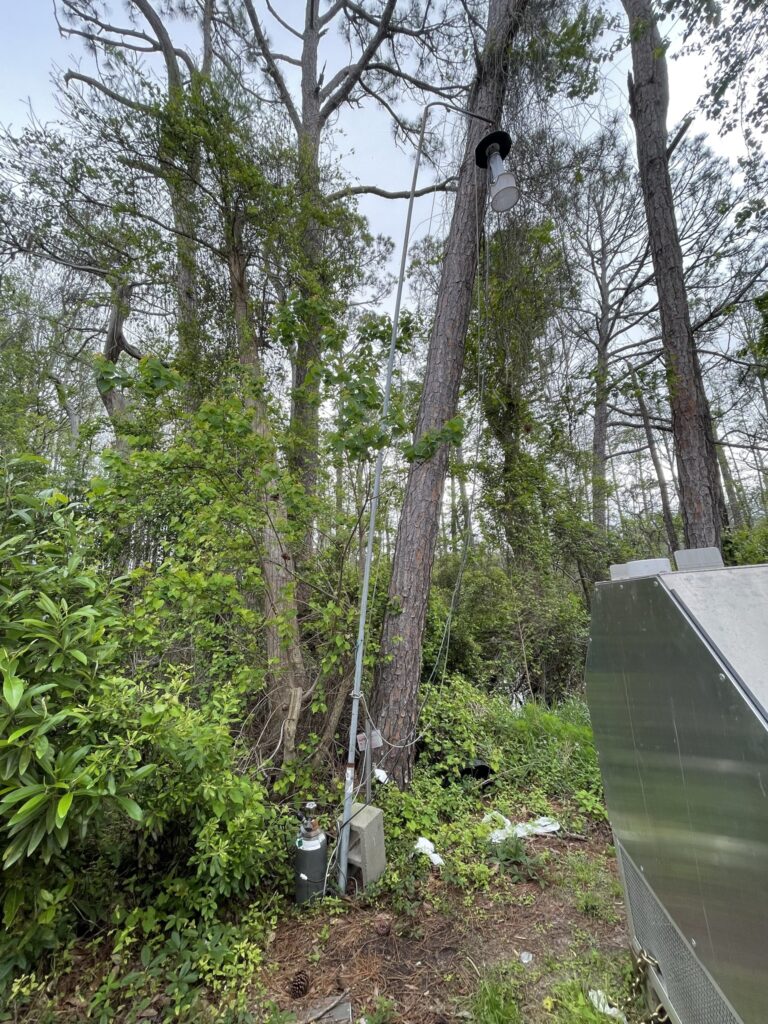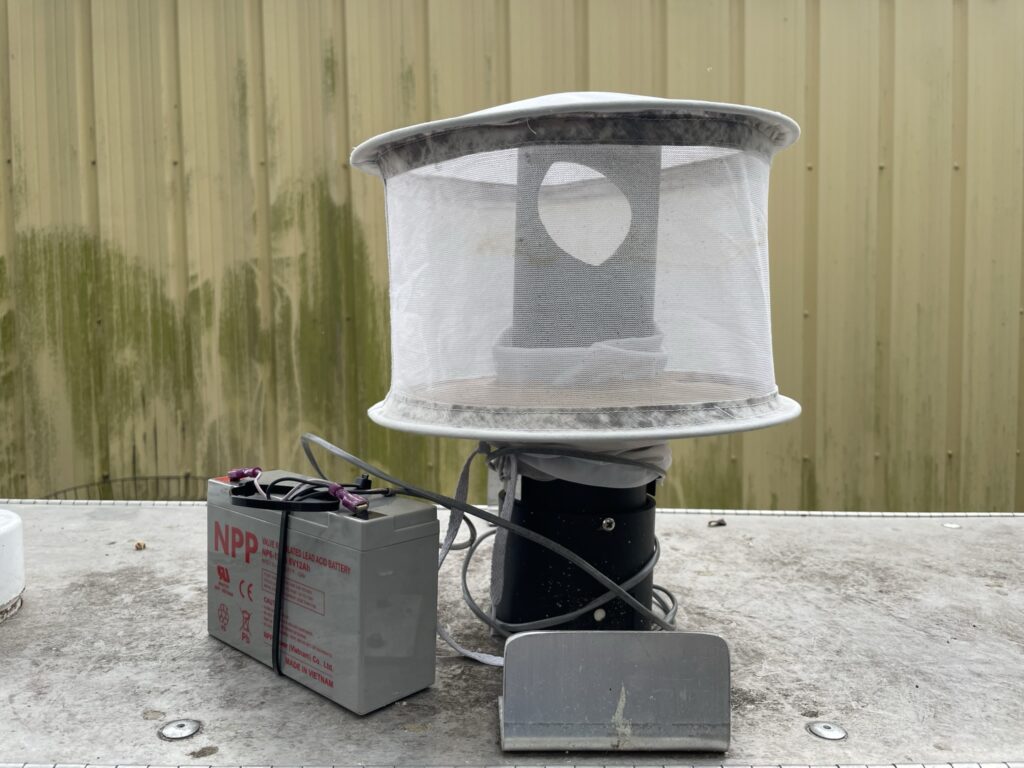Surveillance & Research
Research Capacities Include:
-
Mosquito Population Surveillance and Surveys
-
Microscopy and Identification of Arthropods
-
Insect Rearing and Colony Maintenance
-
Pesticide Efficacy Testing
-
Immuno-Chromatographic Antigen Detection Assay
-
Pesticide Resistance Monitoring Biological Assays
Arbovirus Surveillance
Since 1998, BMCD has monitored 3 sentinel chicken sites for the presence of arthropod-borne viruses (AKA arboviruses), including West Nile Virus. The sentinel chickens are tested for the presence of antibodies to four viruses known to be transmitted by mosquitoes in Florida. Pictured below is one of our field chicken coops.
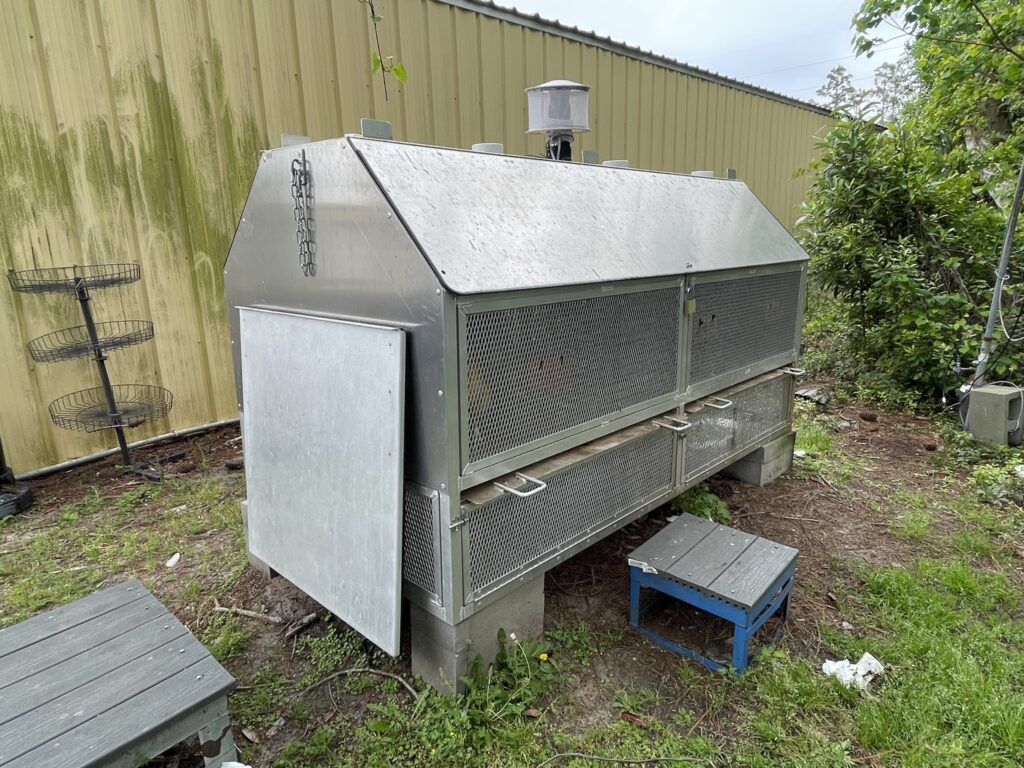
Mosquito Population Surveillance
Beach Mosquito Control District has 17 sites that we routinely monitor for mosquitoes. Twice a week we set 22 mosquito traps consisting of standard CDC mosquito light traps, canopy CDC mosquito light traps (set at 9 meters off the ground), and coop exit traps. This allows us to analyze how many mosquitoes are present in our district, what species are active, and if any areas need to be sprayed with an insecticide.
We also set gravid traps once a week. These traps specifically target mosquitoes that have already taken a blood meal. We can test these mosquitoes for virus presence to get an idea of how much viral activity is present within our district. It is another tool in our toolbelt to inform us when control is necessary to protect the health of our constituents. Pictured below is one of our gravid traps.
